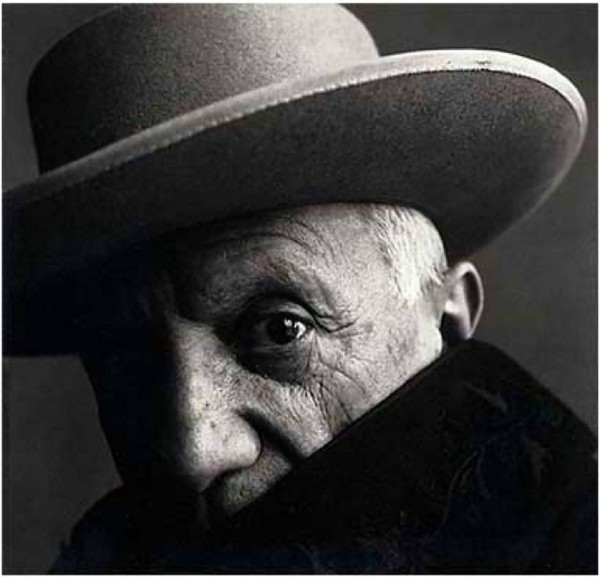Irving Penn
Irving Penn was a studio photographer. He liked studio photography because he could remove whatever he thought was not essential to the photo. I chose the image above as my inspiration because I love the lighting. I personally do not like portrait photography because I don’t like people. However, I do like dramatic lighting. I also considered who I wanted to photograph and how they would look best in a photo. I chose my mother as my subject. She can be a very intense and dramatic person so I thought that a black and white studio portrait with dramatic lighting would fit her personality best. I also had some experience with using dramatic lighting from a previous portrait assignment.
I
like dramatic lighting because it can provide information while at the same
time concealing it. It provides mystery and suspense. It reminds me of old
black and white crime movies. They would hide a character's face with shadows to
create suspense leading up to the reveal of their identity. The shadows on the
face hide details while the light on the face exposes every detail to be seen. It’s
like yin and yang, the known vs. the unknown.
In
this image, the unknown is just as important as what is known. This is because how
you interpret the unknown will impact how you interpret the know. The fact that can
not see the eye on the left or the mouth means you have to determine yourself
what this man is thinking. For instance, if he was smiling you would conclude he
was happy, or if he was frowning you would assume he was sad. However, all you
can see is his one eye. So what is this man feeling? What is he thinking? Why is
it important? I see a man who is trying to hide something. A man who is sad and
alone. I think he is trying to hide from his pain and his emotions. Now someone
else would probably see something else. That is the other great thing about this
photo. Based on how someone interprets a photo like this you can tell their
state of mind. A sad person will see a sad person, a devious person might see a
man plotting something, and so on.
Lighting
is key to any good image and drama is key to any good story. So what is a good narrative
image without dramatic lighting?

Comments
Post a Comment